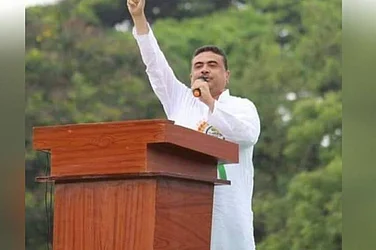On May 10, a young doctor, Vandana Das, was stabbed to death at Kerala’s Kottarakkara Taluk Hospital where she worked as part of her internship training. The postmortem report revealed that she was stabbed in her face, neck, head, and back, resulting in fatal wounds to her internal organs, including the lungs.
The young doctor in her early 20s was attending to a patient, who was later identified as a teacher and was brought to the hospital for wound dressing. But he picked the surgical scissors and attacked Vandana, whose death has once again become reminiscent of several similar incidents that echo the escalating violence health workers of India are subjected to with no cohesive prevention to fall back on.
Following the incident, which created a massive furore and sparked protests among health workers over the lack of comprehensive legislation to fight violence, Sulphi Noohu, President of the Indian Medical Association (IMA), Kerala told DW that at least five cases of attacks on doctors are reported every month in Kerala and more than 200 such attacks, including intimidation and threats, have been reported in the past three years.
According to 2019 data, the IMA suggests that up to 75 per cent of doctors have faced some kind of violence at work, which is similar to the rates from other countries in the continent. Among this, nearly 50 per cent of violence was reported in intensive care units (ICUs), and, in 70 per cent of the cases, the patient’s relatives were actively involved.
Prior to the attack on Vandana, on January 6, early this year, two junior doctors at Shri Vasantrao Naik Government Medical College in Maharashtra’s Yavatmal district were attacked by a patient with a fruit cutter.
In 2019, there was a mass resignation of doctors in West Bengal after a mob attacked a junior doctor. The attack was triggered by the death of a patient, with the family alleging medical negligence. The incident, which happened at the government-run NRS Hospital, had sparked widespread protest across the state. Nearly 50 intern doctors shut the gates of the hospital to protest the assault and the West Bengal Doctors’ Forum proposed to stop their work at all outpatient facilities at government-run hospitals. The doctors also demanded that West Bengal Chief Minister Mamta Banerjee takes the necessary steps to ensure patient safety.
In 2019, referring to an incident in Assam where a mob thrashed a doctor, IMA President Dr JA Jayalal said, “The IMA and the whole fraternity of the country are saddened and anguished to see a brutal attack on the young and vibrant doctor.”
And during the Covid-19 pandemic and lockdown, several incidents of violence against healthcare workers were increasingly reported with the kin of patients alleging blame against medical practitioners for the consistent deaths.
These few incidents are probably a scratch on the surface of growing attacks on healthcare workers. However, the Central government, early this year, decided not to enact separate legislation prohibiting violence against doctors and other healthcare professionals. The government argues that the Epidemic Diseases (Amendment) Act, 2020 is a strong deterrent to prevent attacks on doctors. Under the Act, notified on September 28, 2020, the commission or abetment of acts of violence or damage or loss to any property is punishable with imprisonment for a term of three months to five years, and with a fine of Rs 50,000 to Rs 2,00,000.
Despite this, there has been a growing demand in the medical fraternity demanding a separate law to prohibit violence against doctors and healthcare professionals. Medical practitioners have long argued that the system has failed to provide frontline workers with adequate mental and physical support.
In this context, Outlook puts together several voices of health practitioners who shine a light on how healthcare violence is becoming an alarming phenomenon across the country








.png?auto=format%2Ccompress&fit=max&format=webp&w=768&dpr=1.0)




.png?auto=format%2Ccompress&fit=max&format=webp&w=376&dpr=2.0)




.png?w=200&auto=format%2Ccompress&fit=max)







